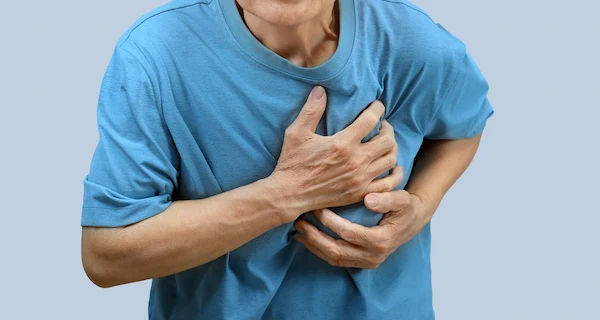- Male
- 40 Years
- 29/01/2025
What do you think it means when my ECG shows a T wave inversion and my echo test results are fine, but my TMT test comes back positive? These have been the results for the past ten years. Now I've also caught COVID-19 with a mild lung infection. Any advice?
Answered by 1 Apollo Doctors
based on your description of T wave inversion in ECG, a positive TMT test for the past 10 years, and mild COVID-19 infection in the lungs, it suggests that you may have a long-standing cardiac issue. The T wave inversion in ECG can indicate heart muscle ischemia or other cardiac problems. Since your TMT test has been positive for the past 10 years, it indicates that there is a likelihood of coronary artery disease or heart-related issues. In this case, it is important to continue monitoring your heart health closely. You may consider taking medications such as Aspirin and Atorvastatin to reduce the risk of heart complications. Additionally, for your mild COVID-19 infection, it is crucial to follow the prescribed treatment plan, rest, stay hydrated, and monitor your symptoms closely. Please consult your healthcare provider for a thorough evaluation and personalized treatment plan.
Dr. Dhankecha Suggests...
Consult a Cardiologist
Answered 04/07/2025
0
0

More Cardiology Health Queries
View allI'm a 44-year-old male and I just went through a health check-up with a pretty comprehensive package. Most of my results like the CBC, kidney function, lung X-ray, ESR, creatinine, blood urea, liver function, plasma glucose, HbA1c, hormone levels, thyroid assay, and urine routine came back normal. But I'm a bit concerned because my lipid profile and ECG came back with some differences, and two values in the lipid profile were highlighted in bold. I'm attaching those reports here. Could you let me know if there's anything I should be worried about or if everything's alright? What steps should I take next? Your help would be really appreciated.
Based on the information provided, your lipid profile and ECG results are of concern. The two bold parameters in the lipid profile may indicate high cholesterol levels, which can increase your risk of heart disease. For this, you can start taking Atorvastatin 20mg once daily to help lower your cholesterol levels. As for the ECG, it would be best to consult with a cardiologist for further evaluation and interpretation of the results. They may recommend additional tests or treatments based on their assessment. Overall, it is important to follow up with a healthcare provider for a more detailed analysis and personalized treatment plan.
Answered by 1 Apollo Doctors
Is there any way to reverse LVDD grade 2 with an MV EA ratio of 1.03 and mild LVH? What kind of steps or treatments could help improve this condition?
To help reverse left ventricular diastolic dysfunction (LVDD) grade 2 and mild left ventricular hypertrophy (LVH), it is important to focus on lifestyle modifications and medications as per your doctor's recommendation. Some common approaches include: - ACE inhibitors like Lisinopril 10mg once daily - Beta-blockers like Metoprolol 25mg once daily - Diuretics like Furosemide 40mg once daily - Lifestyle changes such as regular exercise, a heart-healthy diet low in sodium and saturated fats, maintaining a healthy weight, and avoiding smoking and excessive alcohol consumption. These interventions can help improve heart function and potentially reverse LVDD and LVH. Regular follow-up with your healthcare provider is essential to monitor progress and adjust treatment as needed.
Answered by 1 Apollo Doctors
I'm really worried about this ongoing pain I've been having. I've had pain in my left chest, shoulder, arm, and leg for about 56 months now. I got all the tests done like ECG, 2D echo, and a chest X-ray, and they were all fine, but that was 34 months ago. However, they did find a vitamin D deficiency, and there was something about my cervical spine in the X-ray. Now, for the past 34 days, I've been experiencing pain in my left jaw too. Should I be concerned that this is related to my heart or do you think there's something else I need to look into? What would be your advice on what to do next?
Given your symptoms and previous tests, it is important to consider the possibility of angina or heart-related chest pain. Since you are experiencing left jaw pain along with other symptoms, it is advisable to consult a cardiologist for further evaluation. In the meantime, you can take a low dose of aspirin (75-100mg) as a precautionary measure. Additionally, continue to address your vitamin D deficiency with supplements and follow up on your cervical issue with appropriate treatment.
Answered by 1 Apollo Doctors
Disclaimer: Answers on Apollo 247 are not intended to replace your doctor advice. Always seek help of a professional doctor in case of an medical emergency or ailment.





